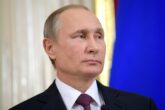January 29, 2024
The EU Should Do More to Help Armenia Shake Off Russia
Azerbaijan’s military offensive in Nagorno-Karabakh in September cemented Baku’s control over the breakaway region, three decades after it gained autonomy under Armenia’s protection amid the breakup of the Soviet Union. The two-day operation, which followed Azerbaijan’s victory in the 2020 war with Armenia over the territory, decisively settled Nagorno-Karabakh’s status, while triggering the mass emigration of its ethnic Armenian population.
Engaging Armenia as a close partner in the South Caucasus would export stability to the region and represent a strategic victory for the EU vis-à-vis Russia.
But as the dust settles, the attack’s ripple effects are reverberating far beyond Nagorno-Karabakh itself. Russia’s decision to stand aside and allow Azerbaijan to conduct its final invasion, despite its peacekeeping role as part of the cease-fire deal that ended the fighting in 2020, has sparked a profound sense of betrayal in Yerevan. That in turn has created an opportunity for the European Union to forge stronger ties with Armenia and reshape the geopolitical orientation of the South Caucasus.
Armenia has diverged from many other post-Soviet countries—such as the Baltic states, Ukraine and Georgia—by maintaining deep ties with Russia rather than seeking to integrate with the EU. As a formal Russian ally under the Moscow-led Collective Security Treaty Organization, or CSTO, Yerevan has long counted on Moscow to guarantee its security. Their robust defense ties include discounted purchases of Russian arms as well as a Russian military base in Gyumri, Armenia’s second-largest city.
Yet these ties have recently frayed—and this past autumn’s events may have been the breaking point. Doubts about relying on Russia initially arose in 2020, after it failed to prevent considerable Armenian losses in the Second Nagorno-Karabakh War. They intensified following Russia’s invasion of Ukraine in 2022, which exposed the Russian military’s weaknesses and aggressive tendencies toward its post-Soviet neighbors. These doubts turned to outrage when Russian peacekeepers refrained from intervening to prevent Azerbaijan’s attack in September, with Armenian Prime Minister Nikol Pashinyan asserting afterward that the relationship with Russia was no longer “enough to ensure the external security of Armenia.”
Read the full article from The World Politics Review.
More from CNAS
-
The Eurasian Century: Hot Wars, Cold Wars, and the Making of the Modern World with Hal Brands
For more than 100 years, the continent of Eurasia has played a central role in global geopolitics. In the 20th century, numerous authoritarian powers from Germany under Kaiser...
By Andrea Kendall-Taylor, Jim Townsend & Hal Brands
-
Trump Wants a Nuclear Deal. Can He Be the Ultimate Negotiator?
Should Trump negotiate with Russia’s Putin, and what terms should he pursue if US and global security is to be enhanced?...
By Jon B. Wolfsthal
-
Trump Turning Washington Crash into ‘Bar Room Talk’ Will Turn People Away | Jim Townsend
Trump's unchecked claims that the DC crash was caused by diversity quotas should "turn people away" from him, says Jim Townsend, an adjunct senior fellow in the CNAS Transatla...
By Jim Townsend
-
Putin’s Fight Won’t End With Ukraine
In an essay for Foreign Affairs, titled “Putin’s Point of No Return,” Andrea Kendall-Taylor, senior fellow and director of the Transatlantic Security Program at the Center for...
By Andrea Kendall-Taylor




